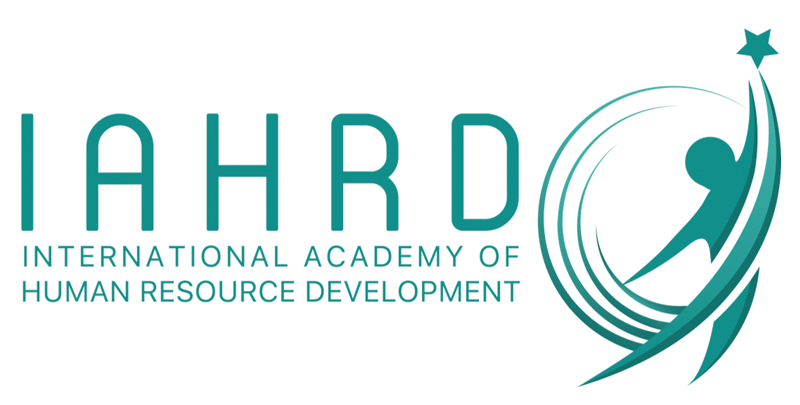
The Art of Managing and Implementing Projects
The Art of Managing and Implementing Projects
Introduction:
This course is introduced to you by the International Academy of Human Resource Development (IAHRD). Our courses are designed by experts in the field and given by professionals.This course takes participants through all aspects of project management and provides extended tools and techniques in managing projects. This course emphasizes the practical tasks, tools, techniques and skills that need to be fully absorbed to ensure a project happens as planned, results are achieved and the project is completed to specification, on time and on budget. It will introduce you to the project management essentials , Work Breakdown Structure (WBS) , resource allocation , project tracking , reporting , risks and relationship management in addition to many other fundamentals. Remember that our team will always be there to support you !
Objectives:
At the end of this course , participants will be able to :
- Clearly state the project management fundamentals.
- Apply up-to-date techniques to solve issues presented in a series of exercises.
- Understand and apply key skills needed to ensure success.
- Handle the division of tasks during implementation.
- Assess status and implications in implementing projects.
Contents:
Module 1:
- Key principles of management.
- Work Breakdown Structure (WBS).
- Budgeting and resource planning.
- Scheduling and timeline development.
- Advanced tools : Earned Value Analysis.
- Problems and actions.
Module 2:
- Tracking projects.
- Status reports and reporting.
- Problem solving.
- Key issues and principles in implementing projects.
- Common problems.
- Managing problem members.
Module 3:
- Change, risks and relationships management.
- Change requests/logs.
- Changing baselines.
- Risk prevention.
- Contingency strategies and budget management.
Module 4:
- Relationship management.
- Key skills: Listening, negotiation, and leadership.
- Negotiation stages, strategies and tactics.
- One‐on‐one negotiations.
- Team negotiations.
Module 5:
- Leadership opportunities.
- Influencing the team.
- Maintaining focus and commitment.
- Measuring benefit.
- PIRs.
- Strategies for learning lessons.
Who Should Attend?
- Managers.
- Executives.
- Supervisors.
- Interested candidates to widen their knowledge in managing and implementingprojects.
times [ Istanbul ]
| from | to | price $ | venue | actions |
|---|---|---|---|---|
| 2025-03-02 | 2025-3-6 | 3,750 | Istanbul | join enquire |
| 2025-03-09 | 2025-3-13 | 3,750 | Istanbul | join enquire |
| 2025-03-16 | 2025-3-20 | 3,750 | Istanbul | join enquire |
| 2025-03-23 | 2025-3-27 | 3,750 | Istanbul | join enquire |
| 2025-03-30 | 2025-4-3 | 3,750 | Istanbul | join enquire |
| 2025-04-06 | 2025-4-10 | 3,750 | Istanbul | join enquire |
| 2025-04-13 | 2025-4-17 | 3,750 | Istanbul | join enquire |
| 2025-04-20 | 2025-4-24 | 3,750 | Istanbul | join enquire |
| 2025-04-27 | 2025-5-1 | 3,750 | Istanbul | join enquire |
| 2025-05-04 | 2025-5-8 | 3,750 | Istanbul | join enquire |
| 2025-05-11 | 2025-5-15 | 3,750 | Istanbul | join enquire |
| 2025-05-18 | 2025-5-22 | 3,750 | Istanbul | join enquire |
| 2025-05-25 | 2025-5-29 | 3,750 | Istanbul | join enquire |
| 2025-06-01 | 2025-6-5 | 3,750 | Istanbul | join enquire |
| 2025-06-08 | 2025-6-12 | 3,750 | Istanbul | join enquire |
| 2025-06-15 | 2025-6-19 | 3,750 | Istanbul | join enquire |
| 2025-06-22 | 2025-6-26 | 3,750 | Istanbul | join enquire |
| 2025-06-29 | 2025-7-3 | 3,750 | Istanbul | join enquire |
| 2025-07-06 | 2025-7-10 | 3,750 | Istanbul | join enquire |
| 2025-07-13 | 2025-7-17 | 3,750 | Istanbul | join enquire |
| 2025-07-20 | 2025-7-24 | 3,750 | Istanbul | join enquire |
| 2025-07-27 | 2025-7-31 | 3,750 | Istanbul | join enquire |
| 2025-08-03 | 2025-8-7 | 3,750 | Istanbul | join enquire |
| 2025-08-10 | 2025-8-14 | 3,750 | Istanbul | join enquire |
| 2025-08-17 | 2025-8-21 | 3,750 | Istanbul | join enquire |
| 2025-08-24 | 2025-8-28 | 3,750 | Istanbul | join enquire |
| 2025-08-31 | 2025-9-4 | 3,750 | Istanbul | join enquire |
| 2025-09-07 | 2025-9-11 | 3,750 | Istanbul | join enquire |
| 2025-09-14 | 2025-9-18 | 3,750 | Istanbul | join enquire |
| 2025-09-21 | 2025-9-25 | 3,750 | Istanbul | join enquire |
| 2025-09-28 | 2025-10-2 | 3,750 | Istanbul | join enquire |
| 2025-10-05 | 2025-10-9 | 3,750 | Istanbul | join enquire |
| 2025-10-12 | 2025-10-16 | 3,750 | Istanbul | join enquire |
| 2025-10-19 | 2025-10-23 | 3,750 | Istanbul | join enquire |
| 2025-10-26 | 2025-10-30 | 3,750 | Istanbul | join enquire |
| 2025-11-02 | 2025-11-6 | 3,750 | Istanbul | join enquire |
| 2025-11-09 | 2025-11-13 | 3,750 | Istanbul | join enquire |
| 2025-11-16 | 2025-11-20 | 3,750 | Istanbul | join enquire |
| 2025-11-23 | 2025-11-27 | 3,750 | Istanbul | join enquire |
| 2025-11-30 | 2025-12-4 | 3,750 | Istanbul | join enquire |
| 2025-12-07 | 2025-12-11 | 3,750 | Istanbul | join enquire |
| 2025-12-14 | 2025-12-18 | 3,750 | Istanbul | join enquire |
| 2025-12-21 | 2025-12-25 | 3,750 | Istanbul | join enquire |
| 2025-12-28 | 2026-1-1 | 3,750 | Istanbul | join enquire |
